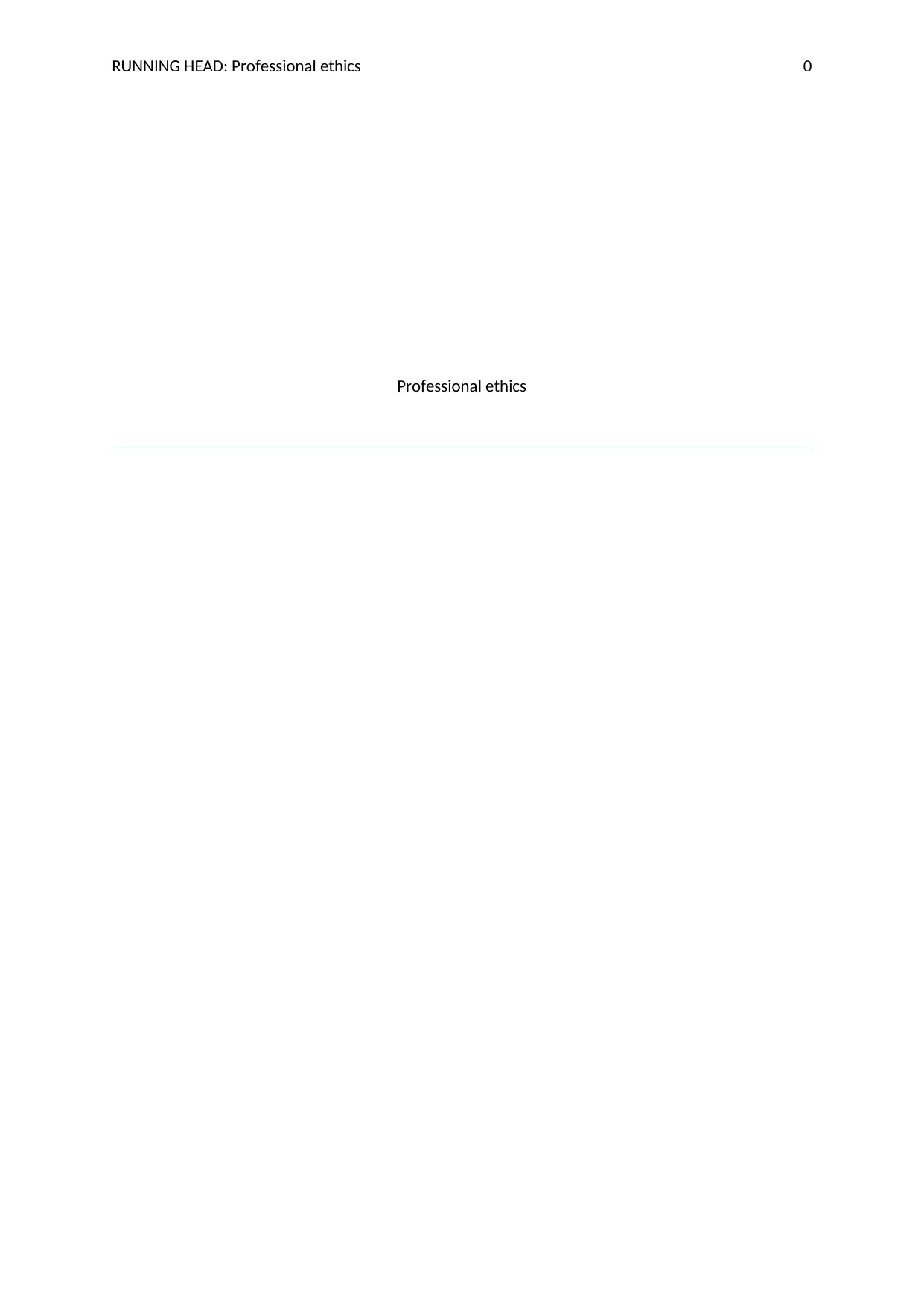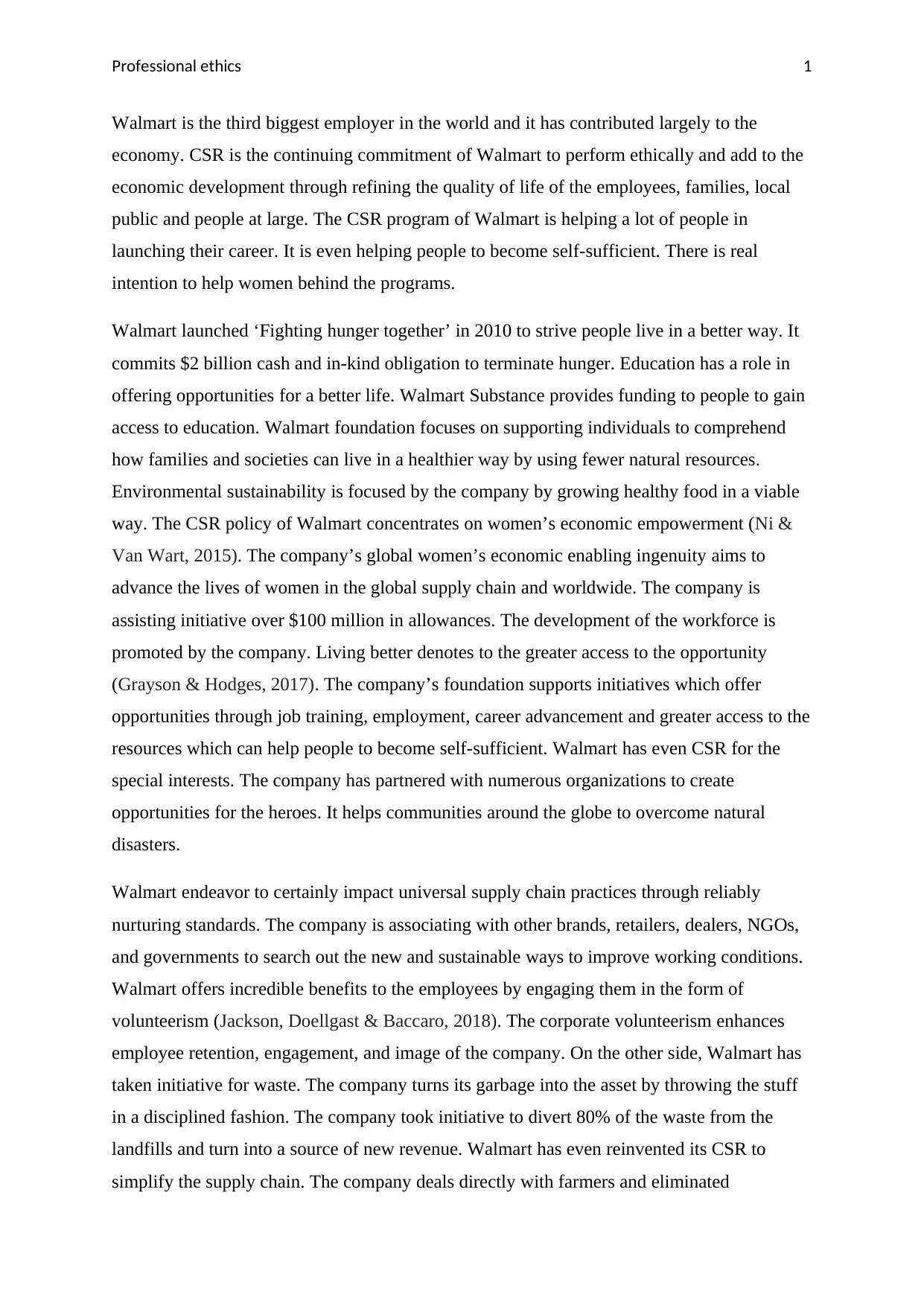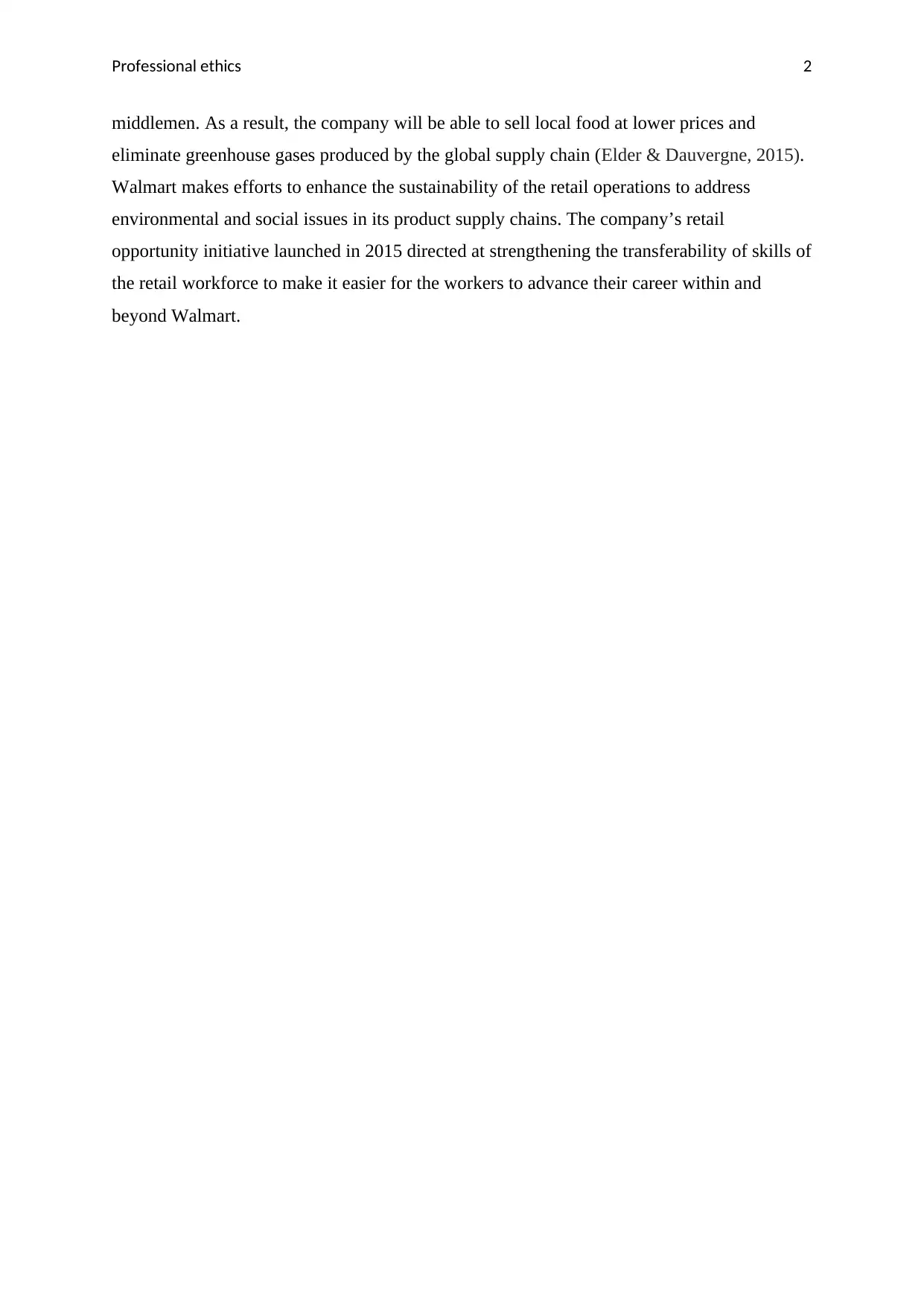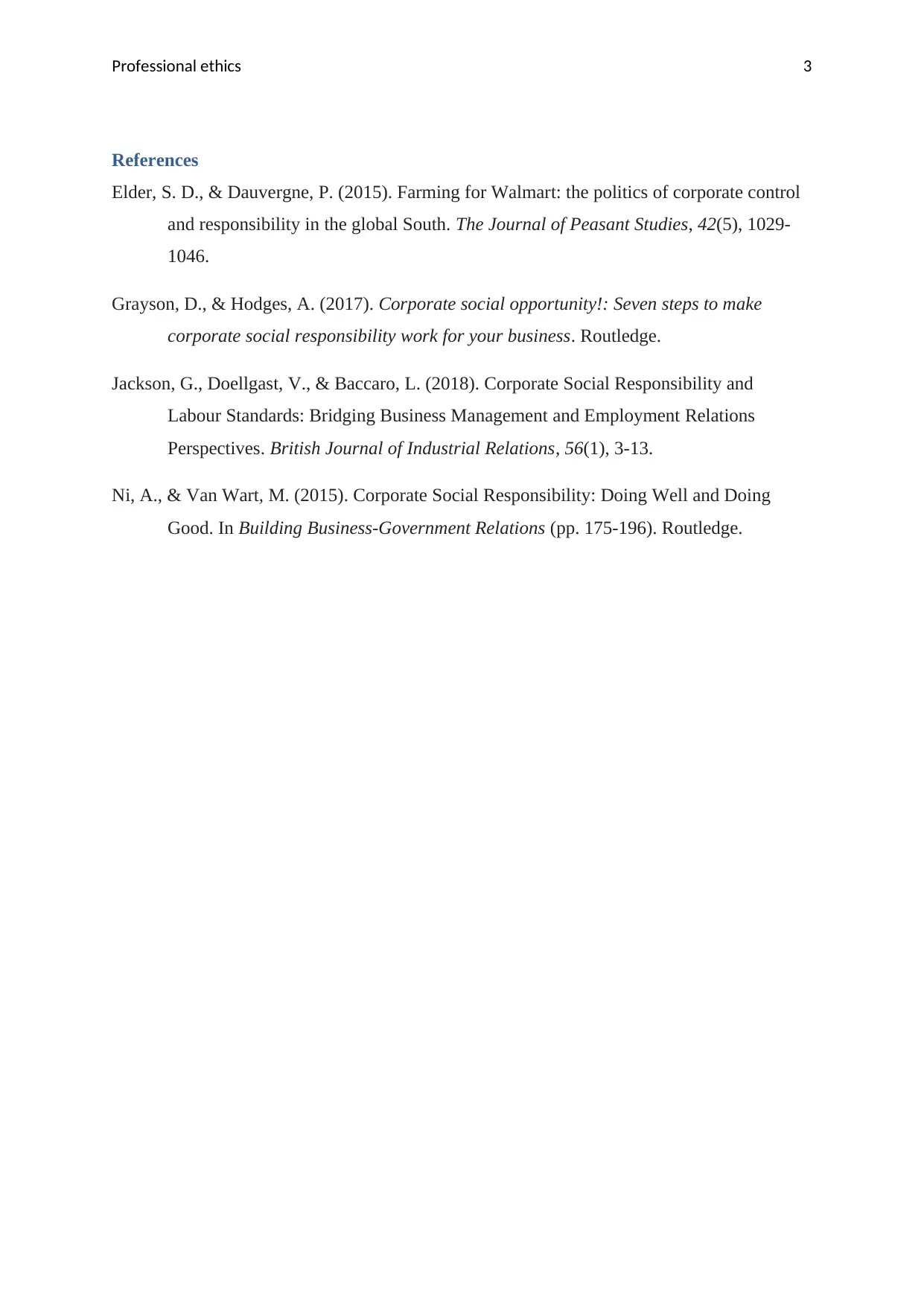An Analysis of Walmart's Corporate Social Responsibility Programs
VerifiedAdded on 2023/04/20
|4
|760
|136
Report
AI Summary
This report examines Walmart's Corporate Social Responsibility (CSR) initiatives, highlighting the company's commitment to ethical practices and community development. Walmart's CSR programs focus on employee well-being, women's economic empowerment, and environmental sustainability. Key initiatives include 'Fighting Hunger Together,' educational funding, and support for environmental sustainability. The company partners with various organizations to address social issues and enhance supply chain practices. Walmart's efforts also include waste reduction and simplifying the supply chain to benefit local farmers and reduce greenhouse gas emissions. The report analyzes Walmart's approach to workforce development and its impact on both internal and external stakeholders, referencing academic sources to support its claims.
1 out of 4











![[object Object]](/_next/static/media/star-bottom.7253800d.svg)